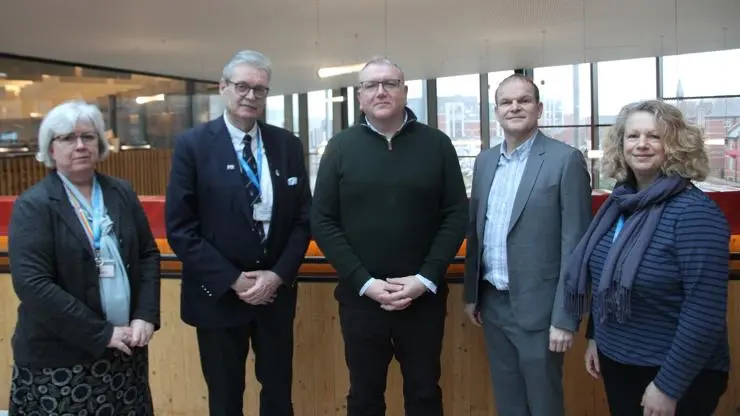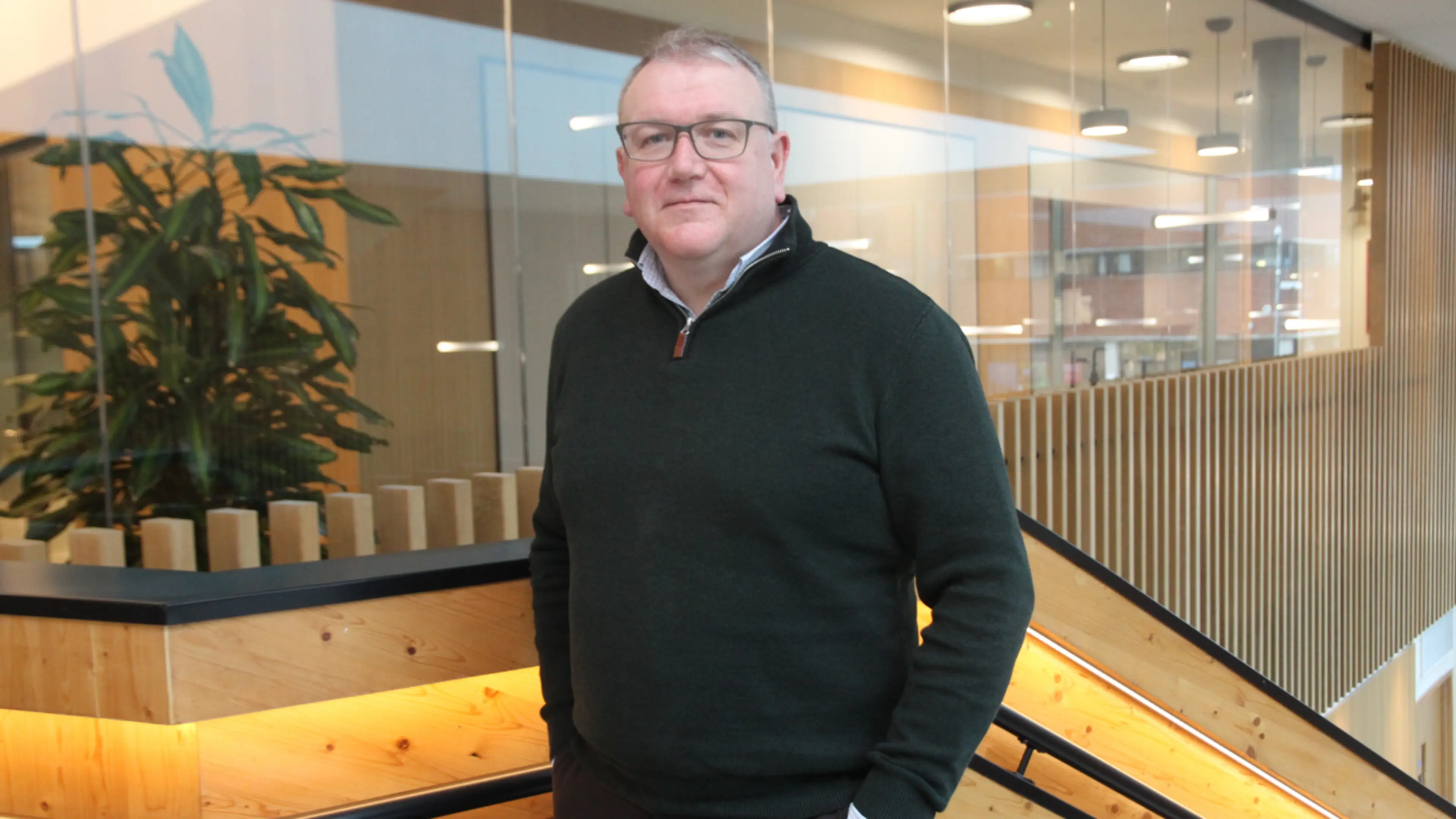The Royal Society Entrepreneur in Residence funding will support the appointment of Scott Hodgins, who will lead a project aimed at supporting entrepreneurship among postgraduate researchers.
Scott Hodgins currently works as Director of Business Development for Consort World, a Dubai-based company with offices in 8 countries around the Middle East. Scott is joining the University for one day a week over the next two years. The Royal Society Entrepreneur in Residence scheme aims to increase the knowledge and awareness in UK universities of cutting-edge industrial science, research, and innovation. Scott has extensive experience in the commercialisation of research working within academia and industries around the world.
Gavin Sim at the School of Engineering and Computing shared: “We are delighted to be working with Scott Hodgins through the successful Royal Society bid. This enables us to draw upon Scott’s vast experience in research and development, bringing new products to market and business growth. We feel this is a great opportunity to act as a catalyst to drive commercialisation of research at the University through the Doctoral Training Centre for Industry Collaboration and the wider academic community.”

The initiative will build on the foundation of the University’s Doctoral Training Centre (DTC), established in 2022. The DTC collaborates with industry partners, such as, EDF Energy, Delta Fire Engineering, and Rinicare Ltd to support 55 PhD students across six schools. The project aims to drive commercialisation and innovation within the academic community.
The project will be delivered in three phases:
Phase 1: Postgraduate Development (Year 1) PhD students will participate in workshops on research commercialisation, culminating in a winter school focused on business creation.
Phase 2: Staff Capability Enhancement (Year 2) Supervisors will engage in workshops to develop skills in research commercialisation and spin-out company creation.
Phase 3: Policy Evaluation A review of existing university policies will identify barriers and opportunities to support staff and students in achieving commercial impact.
"We feel this is a great opportunity to act as a catalyst to drive commercialisation of research at the University through the Doctoral Training Centre for Industry Collaboration and the wider academic community."
— Gavin Sim, DTC Director
Key Objectives
- Equip PhD students with entrepreneurial skills to lead innovation.
- Provide mentorship to support the advancement of student ideas.
- Enhance staff capabilities in research commercialisation.
- Strengthen the University’s intellectual property and innovation support systems.
This initiative highlights the University’s commitment to fostering an entrepreneurial culture and supporting research-driven innovation.
Further details on the Royal Society Entrepreneur in Residence scheme can be found at the Royal Society Entrepreneur in Residence webpage.
